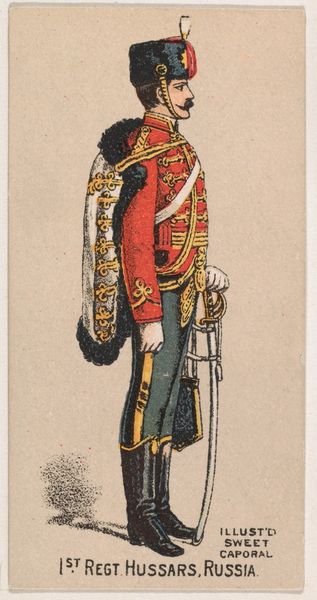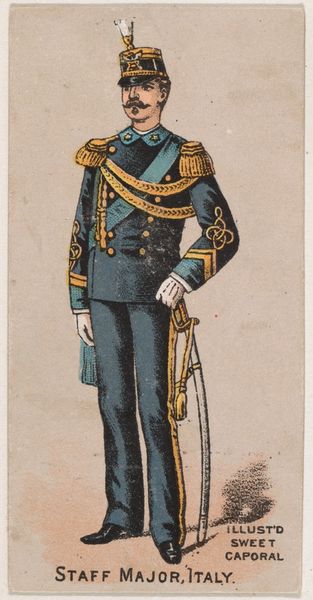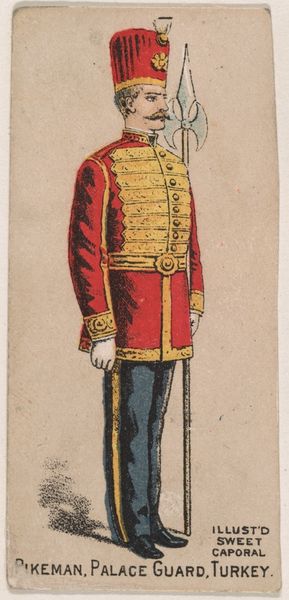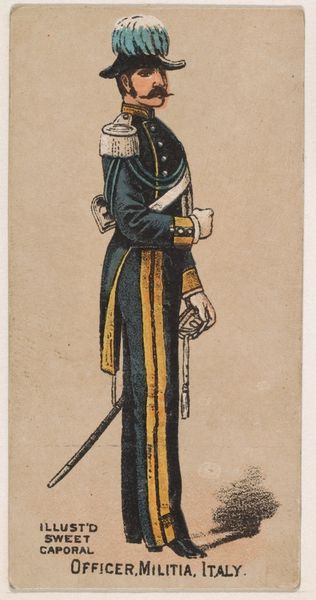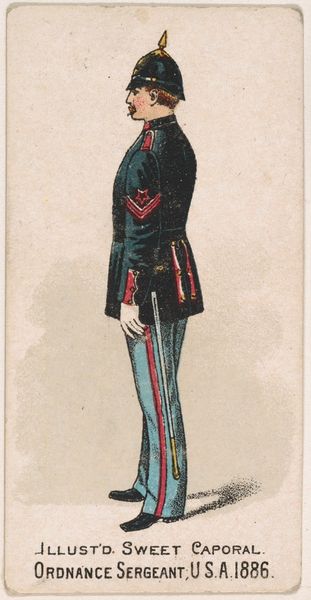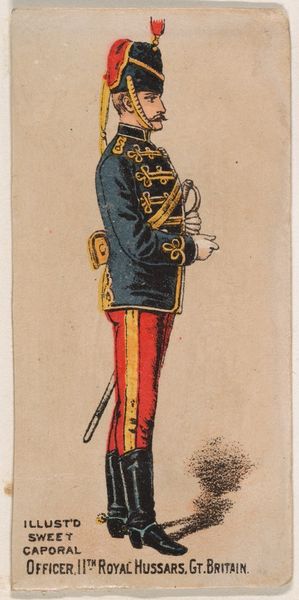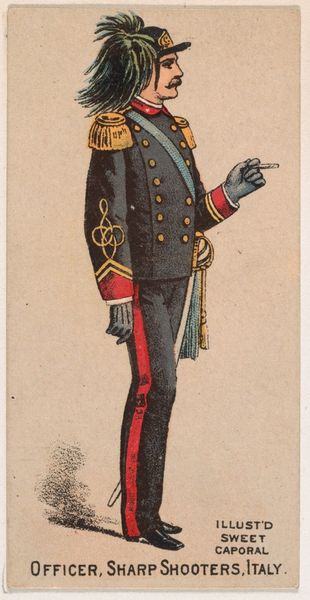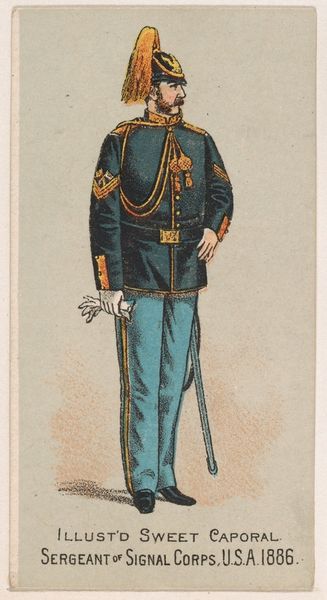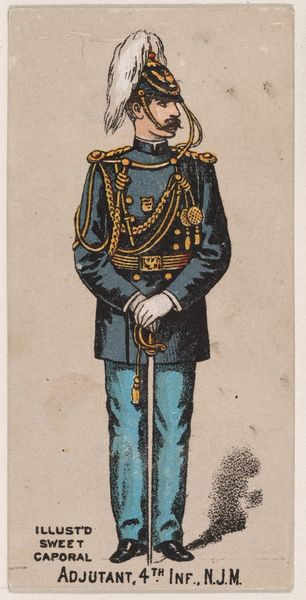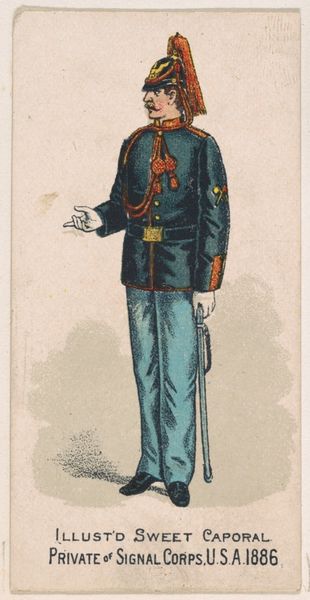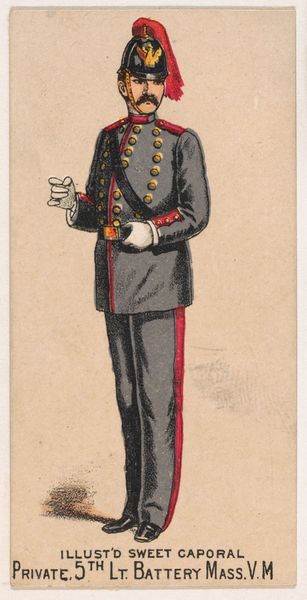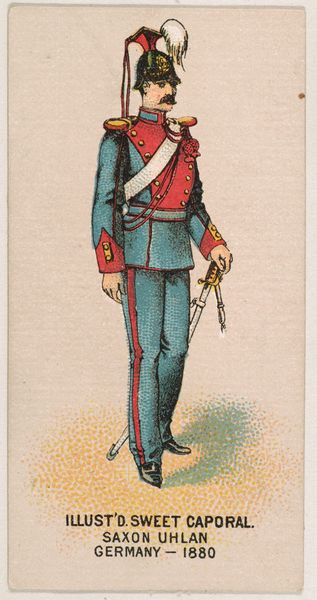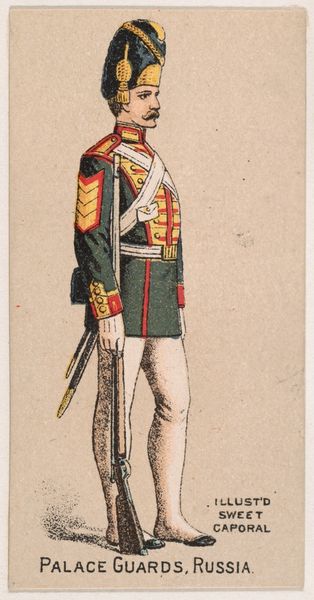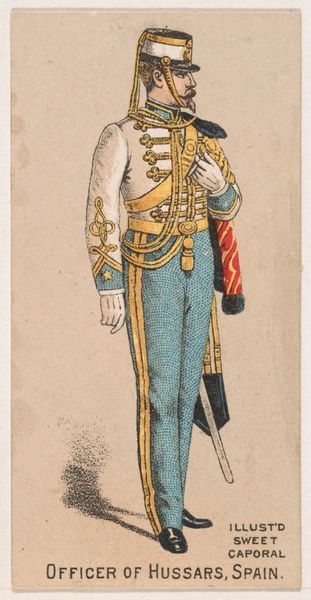
Colonel, Horse Artillery, Turkey, from the Military Series (N224) issued by Kinney Tobacco Company to promote Sweet Caporal Cigarettes 1888
0:00
0:00
drawing, print
#
drawing
#
quirky illustration
#
childish illustration
#
cartoon like
# print
#
cartoon sketch
#
personal sketchbook
#
soldier
#
men
#
sketchbook drawing
#
watercolour illustration
#
cartoon style
#
cartoon carciture
#
sketchbook art
#
sword
#
profile
Dimensions: Sheet: 2 3/4 × 1 1/2 in. (7 × 3.8 cm)
Copyright: Public Domain
Editor: So, this print is called "Colonel, Horse Artillery, Turkey" from the Military Series, made around 1888 by Kinney Brothers Tobacco Company. It looks like a trading card that came with Sweet Caporal Cigarettes. There's something very simple and almost cartoonish about the style, which makes it surprisingly striking. What's your interpretation? Curator: I see a powerful visual encoding of 19th-century power dynamics and Orientalism. Tobacco cards like these, seemingly innocuous, were instrumental in shaping Western perceptions of the "other." How does the artist portray this Turkish colonel? Note the meticulous detail given to the uniform compared to, say, the simplified, almost stereotypical depiction of his face and fez. Editor: It's true; there isn't a lot of personality coming through. Do you think it's meant to be disrespectful? Curator: It’s less about individual disrespect, and more about the flattening of a culture and identity. Consider how these images circulated, reinforcing the idea of European superiority through colonial ventures at the time. How might this seemingly simple image contribute to a broader narrative of the West defining and thus controlling the East? It reduces this officer, this representation of Turkish military might, into a collectible commodity. Editor: So, it's more about power than art? Curator: Art never exists in a vacuum. In this case, a cigarette card becomes a potent tool of cultural imperialism. Understanding the historical context allows us to critically examine the insidious ways in which power and representation intersect. Editor: I guess I’ll never look at trading cards the same way again. Curator: Precisely! These images speak volumes about the subtle and pervasive ways that power operates. It’s a fascinating reminder of the critical lens we must apply to every visual encounter.
Comments
No comments
Be the first to comment and join the conversation on the ultimate creative platform.
